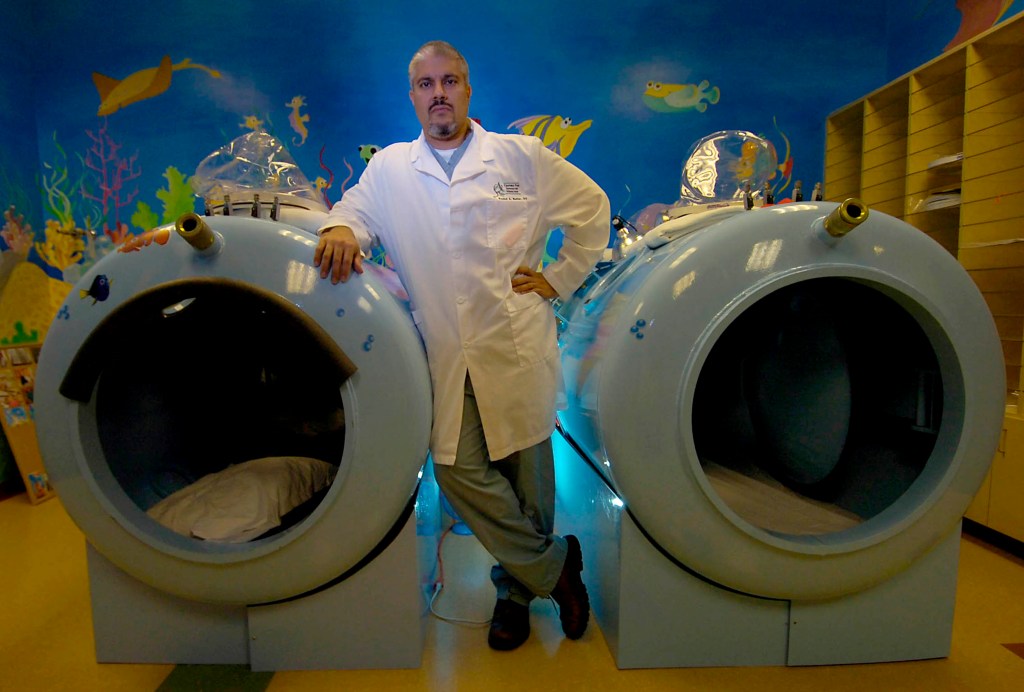A series of mysterious illnesses and deaths associated with vaping has grown into a full-blown drug panic, further exemplified as the president announced that he wants a moratorium on flavored e-cigs.
But there’s still a lot we don’t know about the cause of these cases. We know that 450 people have been sickened and six people have died. Before hysteria sets in, it’s important to understand the causes of these illnesses (which still pale in comparison to the hundreds of thousands of deaths associated with tobacco each year.)
Videos by VICE
A letter published last Friday in the New England Journal of Medicine sheds some light on the believed mechanism of the illnesses, by linking them to macrophages, a type of white blood cell that acts like a sentinel of the immune system, guarding it from attack.
The term macrophage literally means “big eater,” and these microbes live up to their name, gulping up all kinds of disease-causing viruses and bacteria. Macrophages chow down by extending their plasma membranes like blobbish arms to suck intruders inside itself. The macrophage cages the invader inside what’s called a phagosome, where it uses special digestive enzymes to dissolve it. Poof! No more infection.
Being microscopic and blind, it’s miraculous that a macrophage generally knows to eat pathogenic cells and not good ones. But it’s also not difficult to accidentally trigger macrophages into attacking the wrong thing. This is exactly what happens in certain inflammatory bowel diseases, like Crohn’s—macrophages in the gut assault the wrong targets—and that’s what some researchers believe is happening in these vaping incidents as well.
To demonstrate this theory, clinicians from the University of Utah highlighted six vaping injury cases at Salt Lake City’s University Hospital. In the most serious case, a 21-year-old man who was vaping nicotine and THC daily developed shortness of breath and abdominal pain. He was vomiting and nauseous, and X-rays revealed dark spots on his lungs. The man was diagnosed with pneumonia, but soon grew worse and had to be treated for respiratory failure. However, when his doctors tested him, they found no trace of infection. No bacteria, no fungi, no viruses, nothing.
However, in all six cases, patients had elevated levels of fat-laden macrophages in the lungs. (To determine this, they squirted a small amount of fluid in a tiny pocket of the lungs, then siphoned it out for examination.) The types of macrophages they found are distinctive and not commonly seen, the study’s senior author Scott Aberegg said in a press release. “That made everybody start to think carefully about why they were there. Are they scavenging debris in the lungs that was introduced through vaping?”
Another study, also published in NEJM on Friday, found a similar connection. In 14 patients with vaping-related lung problems in Illinois and Wisconsin, half of them had fat-laden macrophages, but their levels were not as high as the Utah patients.
The reason these macrophages are filled with fat could be related to vitamin E acetate, a fat-soluble nutrient that has been found contaminating some illicit vape products. In a statement, the Food and Drug Administration said data was inconclusive for vitamin E acetate as the cause and there’s still not enough evidence here to make a direct link, the researchers also caution. But if a vaping-related injury is suspected in a patient, looking for macrophages could help narrow down the cause and optimize treatment.
“We need to determine if these cells are specific for the illness or whether they are also seen in vaping patients who are not ill and don’t have symptoms,” Aberegg said. “If they are only seen in patients who get sick, we can begin to make some connections between what we’re seeing in the lipid-laden macrophages and whatever components of the vaping oils may be causing this syndrome.”
Troy Farah is an independent journalist from Southwest California. His reporting on drug policy and science has appeared in WIRED, The Guardian, Undark, Discover Magazine, VICE and more. He co-hosts the drug policy podcast Narcotica. Follow him on Twitter.




